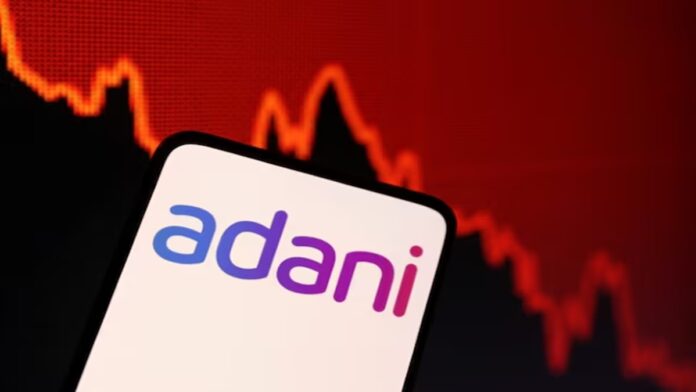The Adani Group has seen a 21% decline in total market capitalisation compared to the previous year, as per to a report dated 24 March 2025. This has led to a market cap erosion of Rs 3.4 trillion.
Here’s how the shares of the company have performed in FY25 so far.
CompanyShare Price as on 28 March 2024Share Price as on 28 March 2025% ChangeAdani Green Energy1,837.2948(48.3)Adani Total Gas925.8601(35.1)Adani Enterprises3,106.62,316.7(25.4)Adani Wilmar321.1257.5(19.8)Adani Energy Solutions1,025870(15.1)Adani Ports & SEZ1,341.71180(12.1)Adani Power533.7508.2(5)Source: Equitymaster
Adani Green Energy has seen the sharpest decline, losing about half of its market cap this year. Adani-owned cement companies have also been suffering, with ACC and Ambuja Cements falling by 23.1% and 15.9% respectively.
ALSO READDividend stocks checklist: 5 stocks to watch out for dividends in April 2025
Here’s why Adani Group stocks are falling…
#1 Regulatory scrutiny intensifies
The market downturn is due, in part, to the mounting regulatory pressures on the Adani group.
In September 2024, the US short-seller Hindenburg Research claimed that Swiss authorities had frozen more than US$ 310 m in several Swiss bank accounts as part of an investigation into alleged money laundering and securities forgery linked to the Adani Group, dating back to 2021.
These allegations, based on Swiss criminal court records, have added to investor concerns.
However, the Adani Group rejected these allegations, labelled them as baseless. The company is that its foreign holding structures remain completely transparent and in line with legal requirements.
In addition, it clarified that neither the company nor its subsidiary companies are involved in any Swiss court proceedings, nor have they received any formal request for clarification.
#2 Bribery accusation effect
A bribery case came to light last year in the US, adding to the upheaval.
The allegations stated Adani officials bribed Indian authorities to secure power purchases for Adani Green Energy and then misled American investors about the company’s anti-corruption policies.
The Securities and Exchange Commission (SEC) said that the officials of Adani paid US$ 265 million (m) in bribes to state government officials between 2020 and 2024, making the company capable of winning an estimated solar power contract for generating US$ 2 billion (bn) in profits in 20 years.
» Read More


